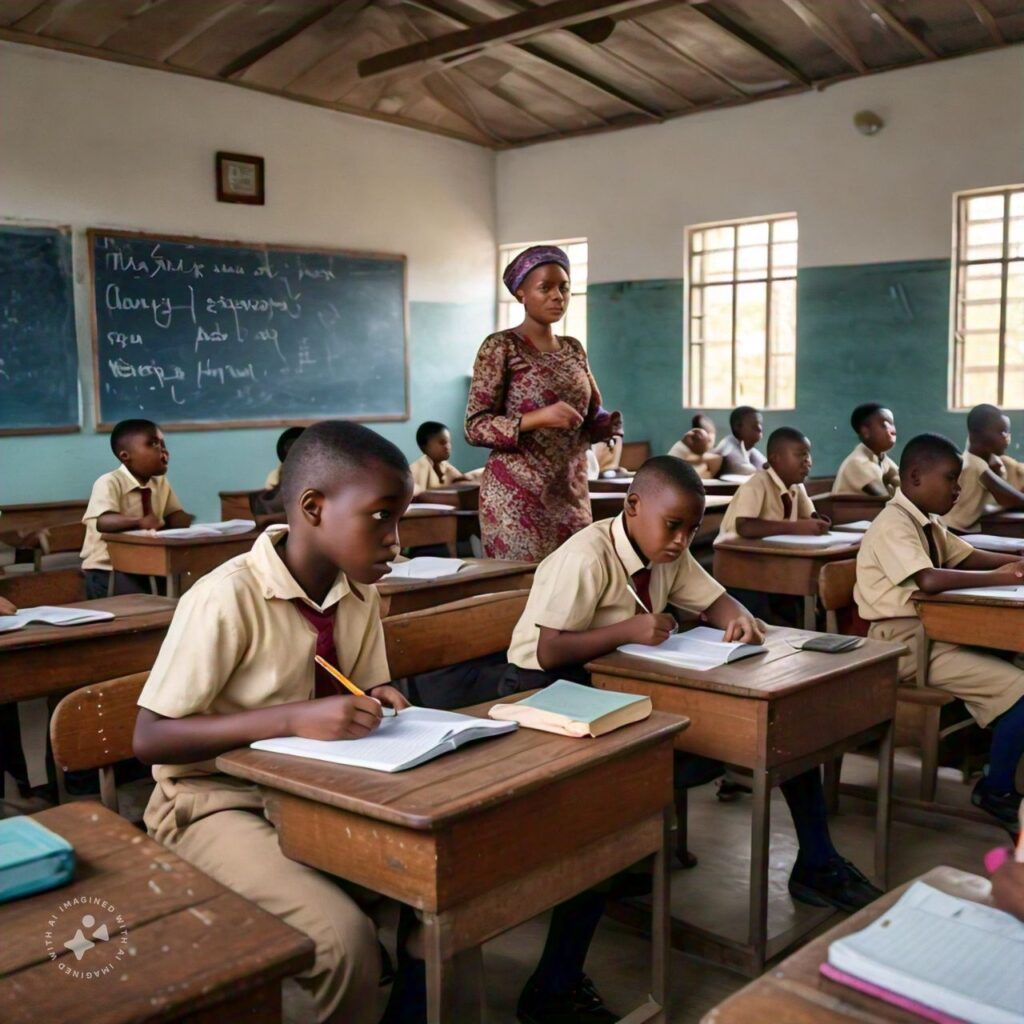Nigeria, with its burgeoning population and dynamic cultural landscape, stands at a critical crossroad in its educational journey.
Despite significant strides made over the decades, the Nigerian educational system faces numerous challenges that undermine the provision of quality education. One of the most pervasive problems in the Nigerian education system is inadequate funding.
Education in Nigeria is primarily funded by the federal, state, and local governments. However, the budgetary allocation to education has consistently fallen short of the UNESCO recommendation of 15-20% of the total national budget.
In 2021, for instance, only about 6% of the national budget was allocated to education. This inadequate funding leads to infrastructure deficiencies, many schools, especially in rural areas, lack basic facilities such as classrooms, laboratories, libraries, and restrooms.
There are also teacher shortages and poor remuneration, as inadequate funding leads to a shortage of qualified teachers and poor salaries for those employed, affecting motivation and performance.
The limited learning resources, including a scarcity of textbooks, laboratory equipment, and other essential teaching aids, further exacerbate the situation.
The quality of teaching in Nigeria is hampered by multiple factors, including the lack of qualified teachers and inadequate professional development opportunities.
Many teachers lack the necessary qualifications or are employed without sufficient training.
This results in low student performance as ineffective teaching methods lead to poor literacy and numeracy levels. High dropout rates are also prevalent as students often lose interest in education due to uninspiring teaching.
To address these issues, there is a need for teacher training programs to enhance teachers’ skills and knowledge and providing incentives such as better salaries, housing, and healthcare to attract and retain qualified teachers.
Infrastructure deficiencies are another significant problem. Many educational institutions in Nigeria suffer from poor infrastructure, a problem more pronounced in rural areas where schools often operate in dilapidated buildings with inadequate facilities. This creates unsafe learning environments, affecting students’ health and safety, and can limit access to education, especially for students with disabilities.
Government intervention is needed to prioritize the renovation and construction of school facilities, and community involvement should be encouraged in the maintenance and improvement of school infrastructure.
The Nigerian curriculum is often criticized for being outdated and not aligned with the needs of the modern world. There is a significant gap between what is taught in schools and the skills required in the job market, resulting in irrelevant education as students are often taught theoretical knowledge with little practical application, leaving them unprepared for the workforce. This mismatch between education and employment needs contributes to high unemployment rates among graduates.
Curriculum reform is necessary to include more practical and vocational training, and industry stakeholders should be involved in curriculum development to ensure alignment with market needs.
Poverty remains a significant barrier to education in Nigeria. Many families cannot afford school fees, uniforms, and other related expenses.
Additionally, socio-cultural factors such as early marriage and child labor further hinder educational access, particularly for girls.
This results in gender disparities, with girls disproportionately affected, leading to lower female literacy rates and limited opportunities for women. Limited access to education perpetuates the cycle of poverty, as uneducated individuals often have fewer economic opportunities.
Scholarship programmes and financial aid are needed to support underprivileged students, and awareness campaigns should be conducted to highlight the importance of education and combat socio-cultural barriers.
Insecurity, particularly in the northern regions of Nigeria, poses a significant threat to education. Insurgent groups like Boko Haram have targeted educational institutions, leading to the destruction of schools and the abduction of students.
This has resulted in many school closures, depriving thousands of children of their right to education, and students and teachers living in conflict zones suffer from trauma and displacement, disrupting their education and lives.
Government action is needed to strengthen security measures around schools and ensure the safe return of abducted students, and psychosocial support should be provided to affected students and teachers.
While Nigeria has numerous policies aimed at improving education, the implementation of these policies often faces significant challenges, including bureaucratic inefficiencies, corruption, and lack of political will.
This results in policy ineffectiveness as good policies fail to achieve their intended outcomes due to poor implementation, and financial and human resources are wasted on ineffective programs and initiatives.
Strengthening institutions to build the capacity to implement policies effectively and enhancing transparency and accountability in the management of educational resources are crucial steps towards addressing these challenges.
The crises undermining quality education in Nigeria are multifaceted and deeply rooted. Addressing these challenges requires a concerted effort from all stakeholders, including the government, private sector, civil society, and international partners. By increasing funding, improving teacher quality, upgrading infrastructure, reforming the curriculum, addressing socio-economic barriers, enhancing security, and ensuring effective policy implementation, Nigeria can make significant strides towards providing quality education for all its citizens.
The future of Nigeria depends on the education of its youth, and it is imperative that all efforts are directed towards overcoming these crises to build a prosperous and educated nation.
